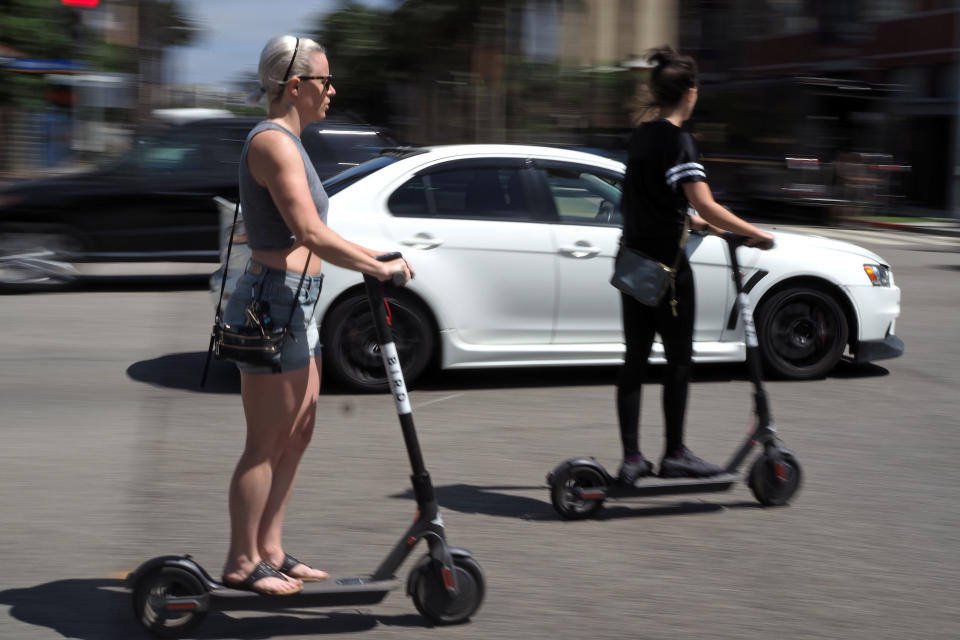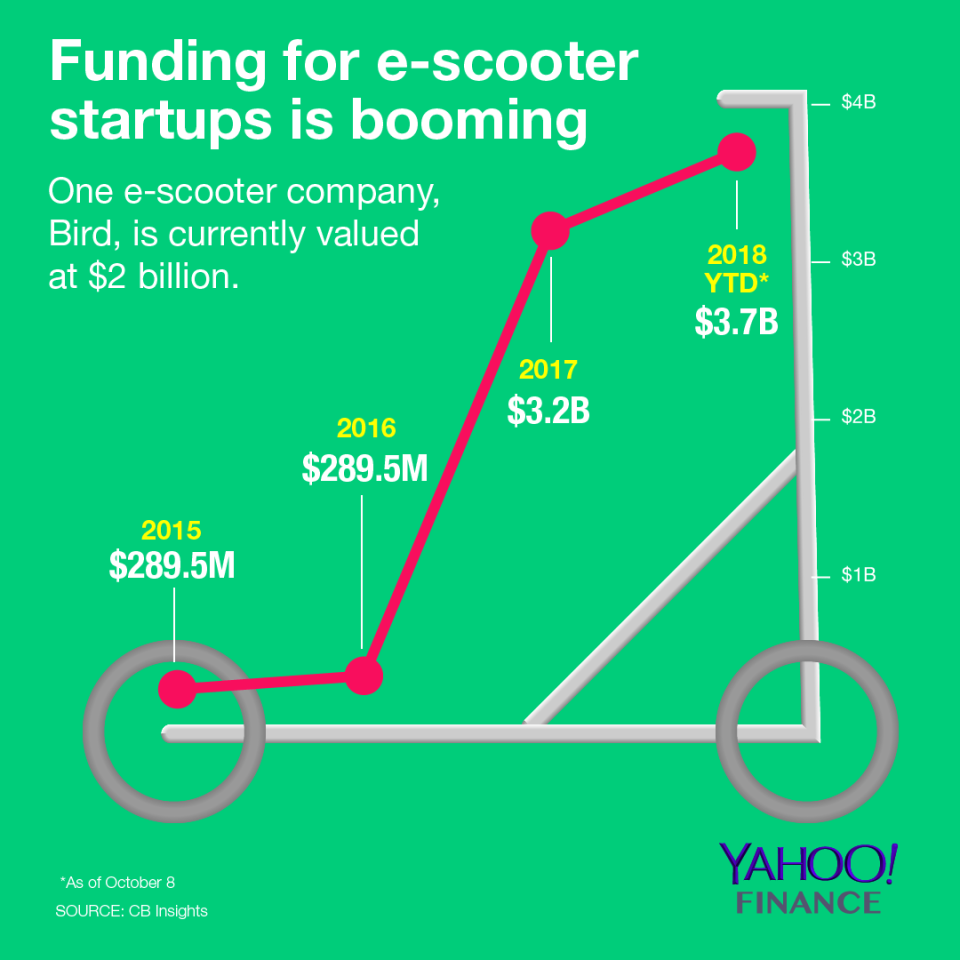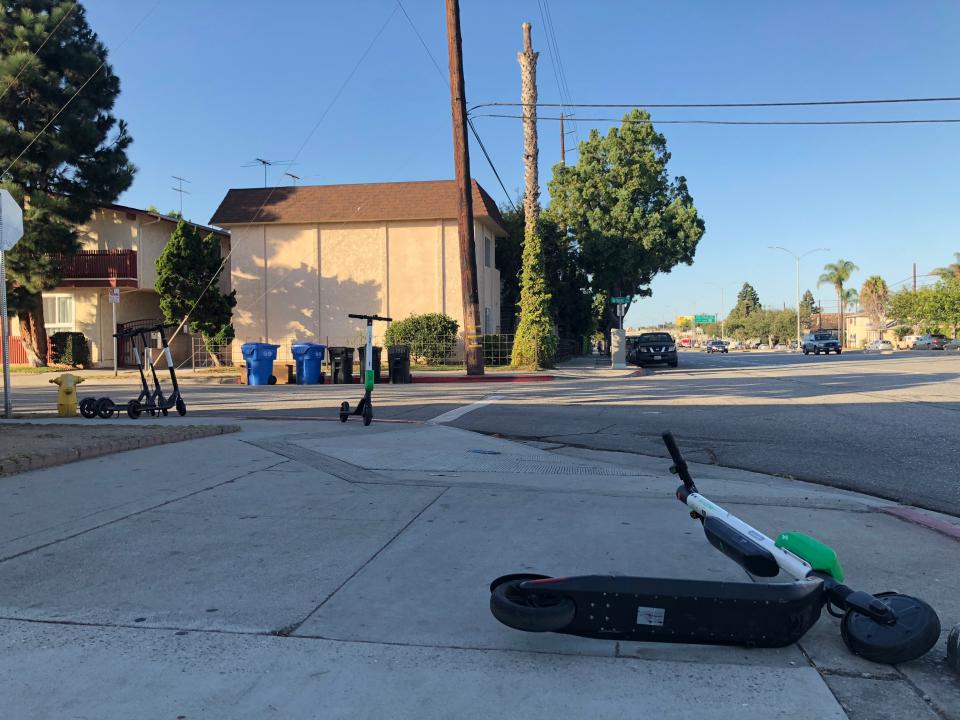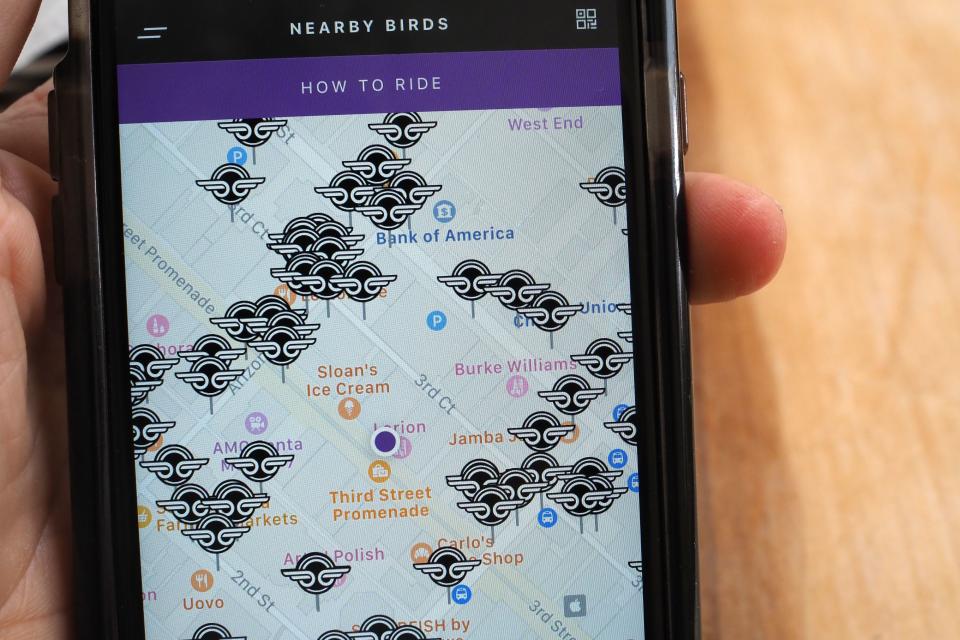Bird CEO explains how and why e-scooters invade certain cities

E-scooter companies Bird and Lime operate in 100 cities around the world but are notably absent from New York and San Francisco. The latter just reinstated e-scooters, though those market-leading players that started the trend are still banned from the city.
Overall, the industry is booming. Bird, founded in September 2017, is the fastest startup to reach unicorn status — hitting the $1 billion mark in about eight months. Currently, the company has a $2 billion valuation after raising $415 million in 18 months, and it’s seeking hundreds of millions in new capital.
Funding to bike- and scooter-sharing startups has picked up substantially over the past two years, with 2018 seeing record levels of funding, according to research from CB Insights. Companies raised $3.7 billion across 44 equity rounds in 2018 so far. Private financing poured $3.2 billion across 85 equity rounds in 2017.

‘We’ll go in and quickly start a dialogue with the city’
At the Vanity Fair New Establishment Summit earlier this month, Bird founder and CEO Travis VanderZanden explained how the e-scooter trend took cities by surprise.
“One of the things that became clear to us with scooter sharing is that cities hadn’t thought about them at all,” he said. “We try to work very closely with individual cities. There are very few places that explicitly outlaw e-scooters.”
One of those places is New York City. In other cities, companies like Bird basically enter the market first and touch base with local officials to work out any potential issues.
“We don’t go to New York — it’s technically illegal to use an e-scooter at the state level,” VanderZanden said. “Places where there’s no law, we work closely with the city and educate them. It usually happens at the same time. We get a business license because when you’re doing e-scooter sharing, you just need a standard business license in most places.”
VanderZanden’s brazen approach is reminiscent of the “Do first, ask forgiveness later” strategy that behemoths such as Google and Uber are best known for. His interpretation of “working with cities” is to establish a presence, scatter scooters across the city, and deal with the consequences after.
“We look at the laws to see if electric scooters generally are banned,” he said. “If it’s not, we’ll go in and quickly start a dialogue with the city.”

‘I have tons of friends who hate them’
The battery-powered scooters trend has sparked the ire of pedestrians and scooter riders alike. Last week, nine plaintiffs in Los Angeles County filed a class action lawsuit against Bird, Lime, and manufacturers Segway and Xiaomi, claiming they have been injured as a result of “gross negligence.”
In response to the litigation, Bird stated: “There is no evidence that riding an e-scooter presents a greater level of danger to riders than riding a bike. Cars remain the greatest threat to commuters, killing over 40,000 people in the U.S. yearly.”
Greg Copeland, a 32-year-old Los Angeles native, told Yahoo Finance that he would “never use it on a busy street — only on side streets. It’s mostly entertaining, but I have tons of friends who hate them and intentionally knock them over.”
Despite significant pushback from cities and consumers alike, Bird has no plans of slowing down. VanderZanden argues that the onus should be on cities to have infrastructure that supports e-scooters.

“Not having protected bike lanes is dangerous for pedestrians and cyclists. Europe is way further ahead than the U.S.,” he added. “We would be happy to pay for protected bike lanes if the city will take the money. The biggest challenge is continuing to educate people — why it’s a good thing for pedestrians and cyclists to have more dedicated lanes.”
‘All you need is a smartphone’
A walk around Los Angeles shows how ubiquitous and bothersome e-scooters actually are. Encountering a kicked-over scooter every few blocks seems like an accident waiting to happen. And at one point, two different cars honked at me to get out of the way during my one-mile e-scooter ride on a street — sans bike path — in the Culver City neighborhood.
“There’s no barrier to entry,” Katie Sachs, 29, told Yahoo Finance. “All you need is a smartphone and finding a scooter. People need to operate it with common sense.”

Despite the e-scooter confusion and concern, VanderZanden believes their ability to reduce carbon emissions and traffic make them an invaluable part of society, and that the adoption curve is just a steep one.
“Any time there’s something new, there [are] tough conversations and rockiness on the road. I have yet to meet a city that’s not excited about fewer car trips,” he said.
Melody Hahm is a senior writer at Yahoo Finance, covering entrepreneurship, technology, and real estate. Follow her on Twitter @melodyhahm.
READ MORE:
